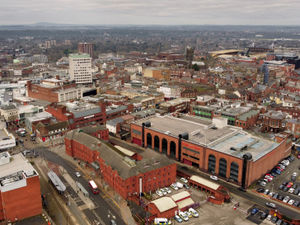Most people in the West Midlands are poorer since 2010
Feeling poorer now compared to a decade ago? The chances are you're not just imagining it.

New figures show that, since 2010, our lives have become less about enjoying our money and more about simply making ends meet.
The average person in the West Midlands has missed out on £4,320 in disposable income when compared with predictions based on 2010 trends, according to new analysis published today by Centre for Cities in Cities Outlook 2024.
Disposable income is defined as the money we have left in our bank accounts each month after we have paid bills and covered the costs of living. It is the money we can have fun with, after our responsibilities have been covered.
The figures reflect the way the UK economy has developed and how it has affected us all as workers.
While jobs have increased and unemployment has stayed low, costs have risen sharply – with prices rising quicker than our wages can keep up. Add to that weak productivity growth in the UK economy and we have a situation in which growth of disposable incomes has been underwhelming.
Total disposable income per head in Birmingham, the Black Country and Solihull since 2010 was £2,680 lower than it would have been if it had grown in line with 1998 to 2010 trends, while in Stoke-on-Trent and Coventry the figures were £7,360 and £8,950 respectively.
Telford and Wrekin has actually bucked the trend with a rise of £1,765, perhaps reflecting the growth of the town of Telford, and the arrival of well-paid white collar jobs.
At a national level, people have been left with £10,200 less to spend or save on average since 2010 than if the economy had grown at pre-2010 trends.
Jobs boomed in most towns and cities after 2010, pulling more people into work. Overall, the West Midlands has added 325,625 jobs since 2010. All cities in the region had jobs growth of 10 or more per cent between 2010 and 2022, with 16 per cent growth in Telford and 15 per cent in Coventry.
But productivity growth – a key driver of wages – declined everywhere too. Productivity growth lagged pre-2010 performance in all cities in the West Midlands.
Housing costs have increased in most places. High housing costs have left the average person with even less income left over to spend or save at the end of the month. Housing became less affordable in every large city and town in the West Midlands.
The nature and prevalence of poverty has changed. Rates of children in relative poverty have risen in every city.
And food banks, a relative rarity, in 2010, are now in every community and a way of life for many who need a helping hand during the cost of living crisis.
Andrew Carter, chief executive of Centre for Cities, said: “Both the two main political parties have pledged to grow the economy and the general election debate will have growth at its heart. The challenge for the next Government is to go beyond the rhetoric and to do what’s needed to make this rhetoric a reality.
“The UK has had a torrid time since the Great Recession. Everywhere, up and down the country, including places that were doing relatively well before, has been levelled down because of the lack of growth. To get growth in every place, the next Government needs to act at a radically different pace and scale, and mark the beginning of a multi-decade policy programme.
“The first step in a realistic approach to grow the economy is to recognise that the British economy is an urban economy.
"Cities account for nine per cent of the land and over 60 per cent of the economy, as well as 72 per cent of high skilled jobs. Their slowdown is at the heart of why the national economy is struggling. There is no plausible way of achieving higher growth without increasing the innovation and dynamism of urban Britain.
“This means reforming the planning system to enable cities to grow, devolving more powers and financial freedoms to encourage our big cities to make decisions that support growth, and following the levelling up rhetoric with bold actions.”





